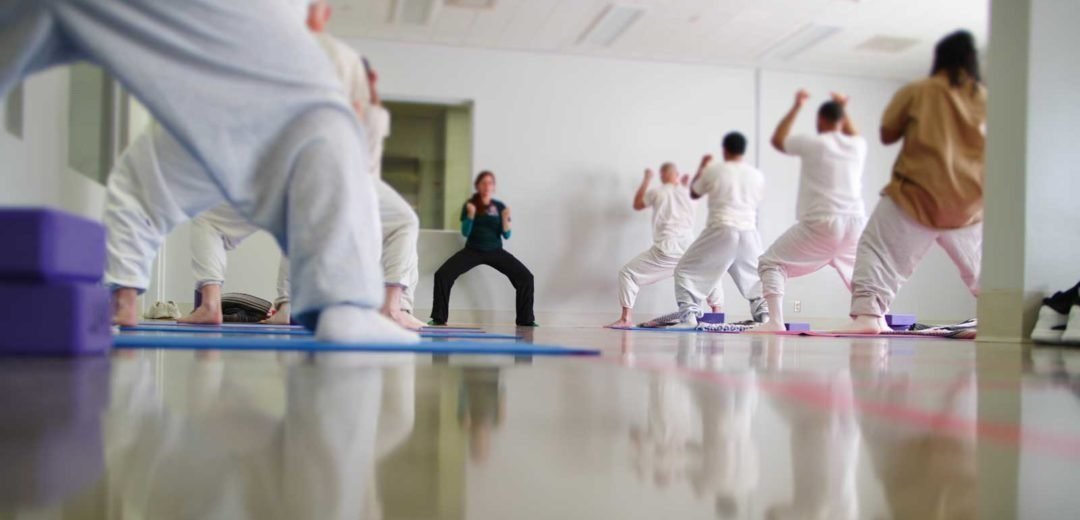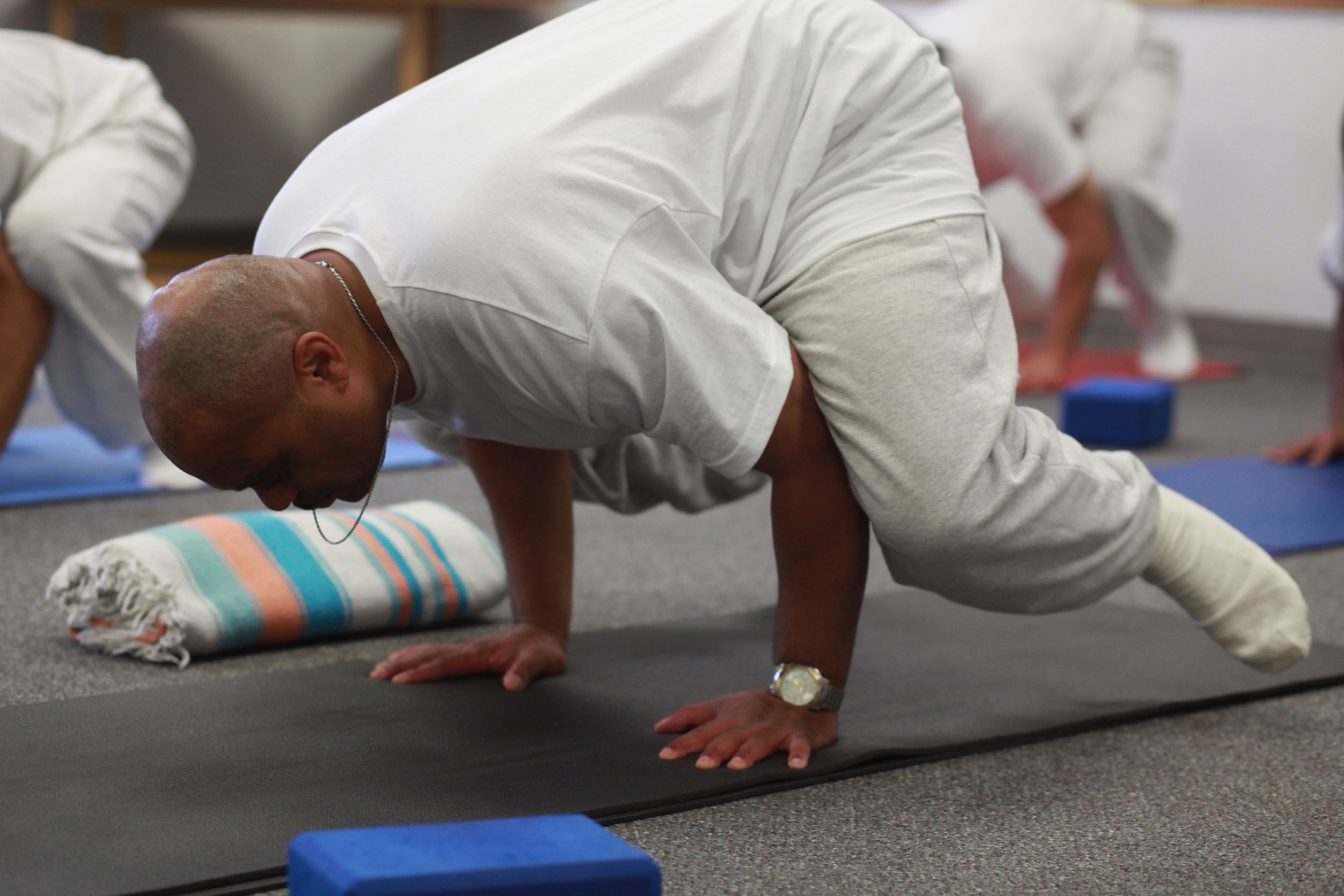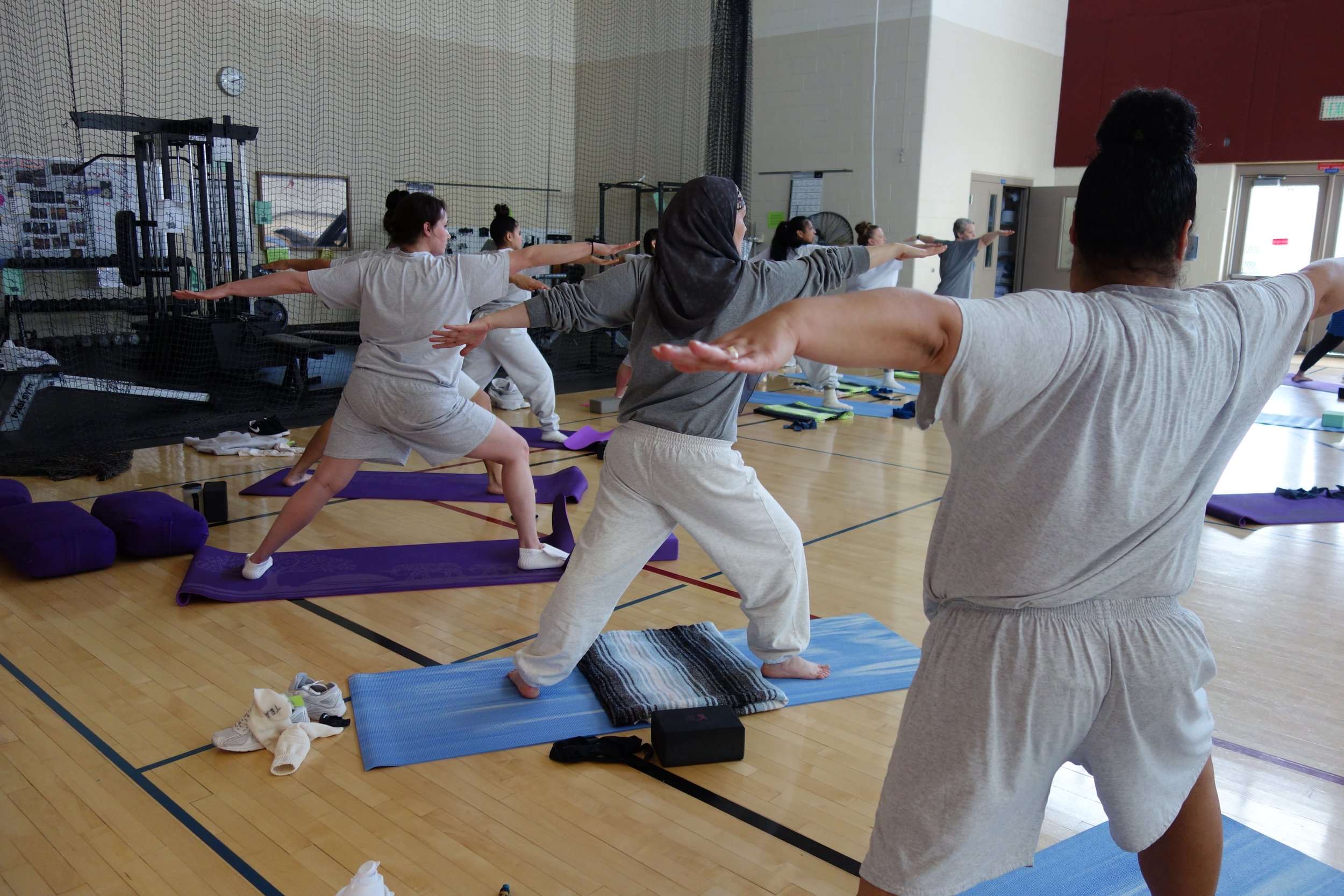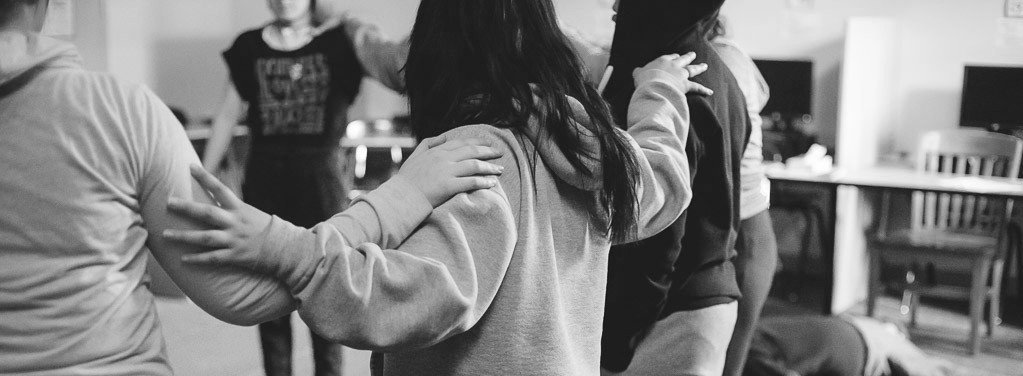
Issue & Impact
Mass incarceration in the United States
Did you know that right now, more than 2.2 million people in the United States are behind bars? Incarceration has increasingly become used as a solution for many other social issues such as mental illness, racism, poverty, homelessness, and drug addiction.Yoga Behind Bars is committed to breaking the vicious trauma-stress-prison cycle.
What is Trauma-Informed Yoga?
We define trauma-informed yoga as accessible embodiment practices that encourage participants to reclaim their agency through choice, inclusion, and nervous-system regulation.
Rather than merely addressing the emotional and physical symptoms of trauma, our classes focus on possibility and choice.
Our instructors have sensitivity and awareness of trauma, and understand its impact on the entire mind-body system. They fully integrate that knowledge into their teaching practices to move their students towards well-being, and help them to actively resist re-traumatization.



Why Trauma-Informed Yoga?
Many youth and adults in prison have long and painful histories of trauma, going all the way back to their early childhood, and even the generations before them. Yet there are very few resources provided to help them to safely integrate this unresolved trauma. More than 90% of people behind bars rejoin society. But within three years, 60% return to prison or jail.
We urgently need to stop this cycle of repeated incarceration, and we’re proud to be part of a movement that encourages us to reimagine our criminal legal system and to think and act differently.. Our trauma-informed and resilience-building methodology offers practical inner tools people can use anywhere. And it works.
In addition to physical benefits and improved overall well-being, yoga and meditation have been scientifically proven to:
Drastically reduce rates of recidivism—Only 8% of individuals who took four or more yoga classes returned to prison, compared with a national average of 60%.
Reduce depression, anger, and anxiety—often a root cause of destructive behavior and drug use.
Be an effective adjunctive therapy during treatment for drug addiction— which is a co-factor in many of our students’ incarceration.

“Trauma sensitive yoga can be incredibly powerful in the healing of a woman who has experienced significant hardship whether incarcerated or not.”
— Staff Member at Washington Corrections Center for Women
Our Impact
Starting with one yoga teacher in Seattle’s downtown jail, we now offer classes in minimum, medium, and maximum custody, solitary confinement, and mental health treatment units, as well as classes for incarcerated veterans. We’ve also trained a team of incarcerated yoga instructors that teach inside their facilities. As an international leader in this work, we offer a unique and practical roadmap for increased well-being, trauma recovery, and lasting social change.
4,103 students annually*
Our students give this work meaning. Each year, we teach thousands of incarcerated people yoga, and bring meditation and asanas to a variety of populations, including youth, the mental health unit at the women’s prison, the veteran’s pod at Kent Jail, and men in solitary at the prison in Monroe, WA.
*pre-Covid
700+ people trained
Our Trauma-informed Yoga Training is a program for people interested in offering an inclusive, resilience-building approach to yoga. People from around the country come to study with us and apply what they learn in a variety of places– including social service settings, community centers, homeless shelters, and schools. And, beyond Washington State, people have started their own YBB-inspired programs in Alaska, Colorado, Maine, Montana, Nebraska, West Virginia, and even Kenya.
15 TBBs trained
Our Teachers Behind Bars (TBB) have carried our programs during the pandemic. In August of 2015, 10 men from five different prisons around the state were transferred to Stafford Creek Corrections Center to start their training. They graduated in February 2016 and are now teaching yoga classes at five facilities across Washington. In October of 2016, 10 women at Washington Corrections Center for Women started their training, and five of them graduated in April 2017.
-
Get Involved
-
Donate


